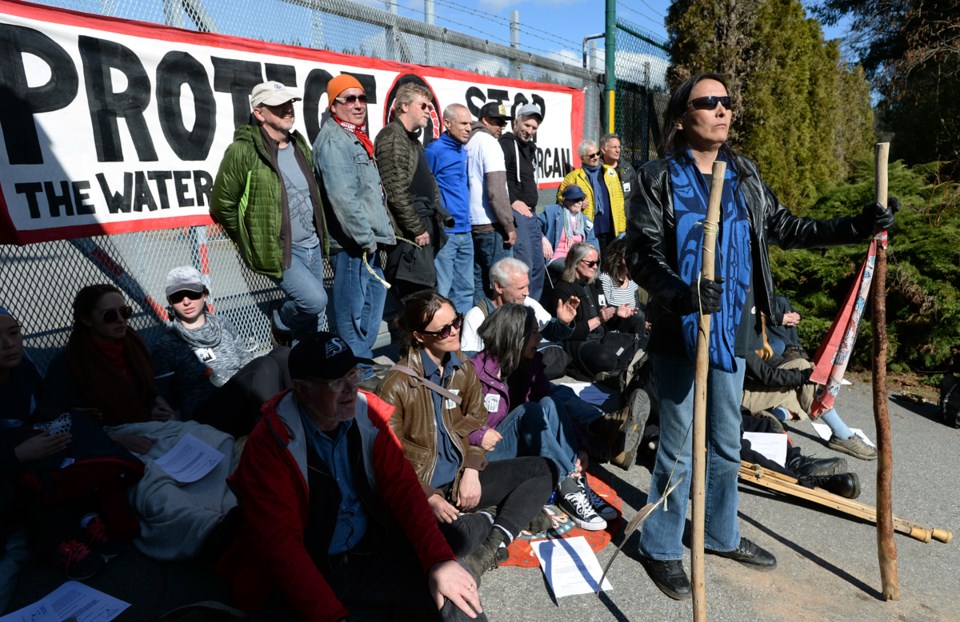A B.C. Supreme Court judge has pinched off a loophole anti-pipeline protesters have been using to dodge arrest after breaking an injunction at Trans Mountain’s two Burnaby terminals.
The original injunction order, issued by Justice Kenneth Affleck, allowed a 10-minute window for police to read protesters the order and then arrest them.
In an application presented at a hearing Friday morning, however, Trans Mountain argued protesters were violating the “spirit and intent” of the injunction by working in waves.
After violating the order, demonstrators have been waiting just short of 10 minutes before moving out of the injunction zone, according to evidence from Burnaby RCMP and two private investigators hired to spy on protesters last week.
Trans Mountain applied to have the 10-minute window scrapped and protesters to be given a “brief opportunity” to comply instead.
“Many of those who are interested in blocking the project — not protesting, as per their right to do so, but blocking the project — have devised a workaround of the injunction order and it offends the spirit of the order,” argued Trans Mountain lawyer Maureen Killoran.
The company wanted the order changed to allow for warning signs and loud speakers to be deemed sufficient for giving protesters notice.
Trans Mountain also applied to have its contractors’ and subcontractors’ project and operations sites added to the areas covered by the five-metre injunction zone.
Killoran cited a May 3 incident in which a protestor climbed on top of a Trans Mountain drill stored in Delta. She said the new protester tactics targeting sites outside Burnaby require an equivalent response.
The order will apply to any site clearly marked as part of the Trans Mountain project. Those specific sites were not named in court.
Defence lawyer N. Chandler argued allowing the application could have long-term consequences.
“Trans Mountain is trying to get a carte blanche order that it may wield in the future wherever it so chooses much to the detriment of the public,” he said.
Another defence lawyer, Martin Peters, went as far as to suggest the amendment would be unconstitutional, as it could lead to the arrest of individuals unaware they were in violation.
Both Killoran and defence attorneys agreed to add the RCMP’s standard five-step arresting procedure into the order to make explicit policies already in place on the ground.
Affleck, however, granted the application, saying protesters had been thwarting the intent of the original order.



